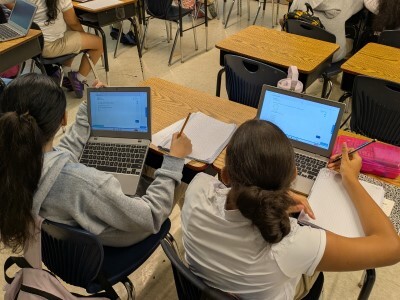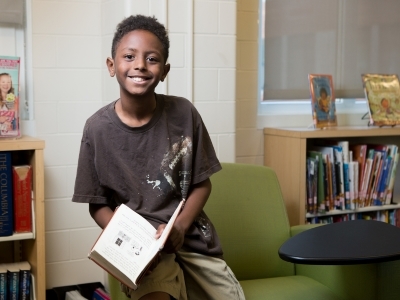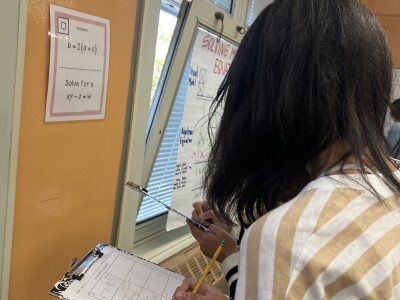iPersonalize: Fullerton School District’s Augmented Reality Game
Topics
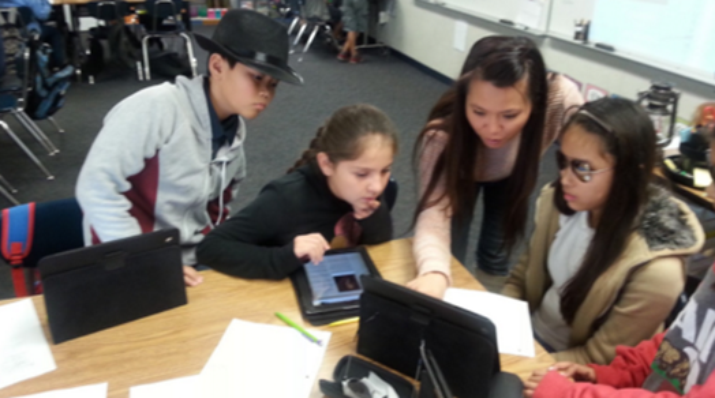
We’ve all had the experience of truly purposeful, authentic learning and know how valuable it is. Educators are taking the best of what we know about learning, student support, effective instruction, and interpersonal skill-building to completely reimagine schools so that students experience that kind of purposeful learning all day, every day.
Practitioner's Guide to Next Gen Learning
The district began the iPersonalize project by thinking through how to bridge the world of gaming with the world of education.
The students in Ms. Hall’s eighth grade English class leave their ordinary teenage lives behind when they enter the classroom. Donning secret agent glasses and briefcases, with carefully created avatars, the heroes engage in personalized quests to save the world from the villains of Captain Ignorance and General Indifference. Students can choose their own topics and each quest contains individualized materials, assessments, and teacher feedback. Think project-based learning but in a game format. Welcome to Fullerton, California, where a team of ace educators are staging a quiet revolution.
An Epic Environment for Learning
iPersonalize is an Augmented Reality Game (ARG) developed by the Fullerton School District to transform education by increasing student engagement in learning and creating experiences for students to achieve mastery. In the game, students advance through individualized pathways called “epic storylines” that are tailored to their academic needs and interest. Students participate in a mix of whole group, small group, and individualized instruction delivered both digitally and face-to-face. A student can demonstrate mastery at any time within a learning goal’s teach or reteach cycle, but must also show mastery via a real world application outside the iPersonalize environment.
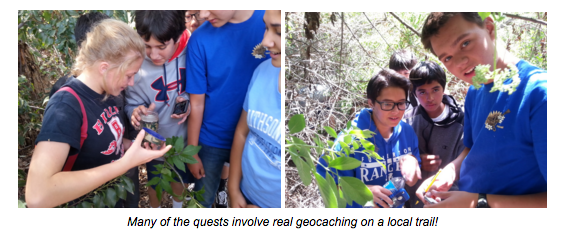
The vision for iPersonalize comes directly from the superintendent of the district, Bob Pletka, along with an all-star leadership team of teachers and district instructional leaders. Here is what motivates Dr. Pletka:
Education is experiencing an engagement crisis where students are increasingly tuning out of traditional educational systems.The focus on proficiency rather than mastery has also taken a toll on students’ passion and desire for learning. One argument might be that it’s just this generation, but when we look at statistics in other areas, we see that these same students are spending on average 14 hours a week in gaming environments, sacrificing time and energy on systems that seemingly have no real value, and yet they are engaged and passionate about learning in these gaming environments.
The district began the iPersonalize project by thinking through how to bridge the world of gaming with the world of education. The team relied heavily on the work of Jane McGonigal in Reality is Broken and the idea of using digital storytelling to create an epic environment that is bigger than the student, class, or school. From the outset, Pletka and his team have partnered with the Marzano Research Laboratory as ongoing research and evaluation partners. Recently, the Marzano Lab provided a letter of endorsement for iPersonalize.
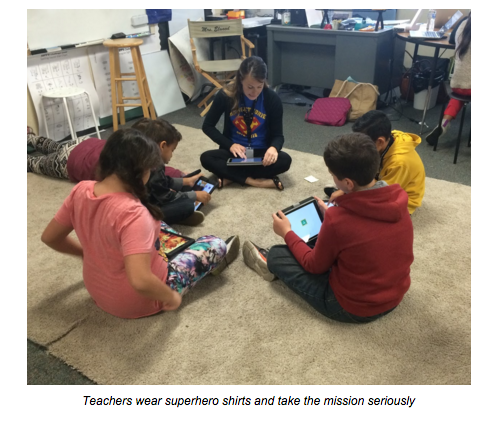
Quests: The Student Experience
“Heroes, agents, and writers have secret identities or pen names to guard their privacy,” teachers tell students as they begin iPersonalize. Students begin their quest by creating their secret gamertag and avatar.
From there, students engage in quest-based learning that allows them to choose their own pathway (within larger required standards and expectations). The district uses an open source platform that allows for the creation of pathways and the tracking of progress toward standards using leaderboards and badges.
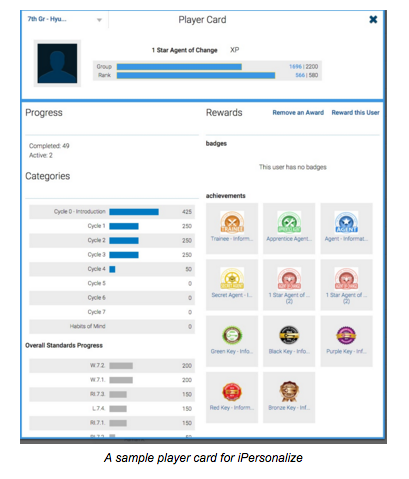
The quest-based learning system allows for the unlocking of content or quests that the students work through at their own pace. Some quests require teacher approval but most use technology to provide students with immediate feedback that unlocks new content. All students take a pre- and a post-test in order to qualify for culminating project-based events when they are ready.
Many of the culminating events involve the local community. In one project, students who achieved mastery in writing self-published a book that was sold by the local Barnes and Nobles. Student authors held a book-signing. Some final projects result in the development of artifacts that are hidden in geocaches and then accessed by the community and rated by other geocachers on a local trail.
The district has found that the mastery-based approach has resulted in students mastering content standards at faster paces because they are so engaged. The superintendent recounts that in the first year or two of the program the students would joke: “Oh, this is just adults trying to disguise learning into a game.” Now, when he sees the same students, they tell him: “This is now really a game!”
Teachers Really Are Superheroes
The key to the entire iPersonalize planning has been leveraging the excitement and talents of classroom teachers who have developed the projects and written the quests. During the first pilot year, 14 teachers volunteered to participate in iPersonalize and received a week long intensive and immersive professional development experience where they worked with colleagues to develop the content, the quests, and the projects. Today, nearly 60 teachers across multiple schools in the district have opted to join the fun.
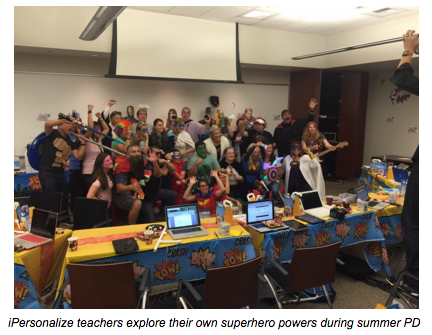
Resources
All of the iPersonalize resources are open source and readily available for sharing and collaboration. I’ve included a few resources that offer a taste of the program:
- Sample Quest: The Muckenthaler is under attack! from Ms. Hall’s 8th grade class with supporting resources:
- Learning Goal for the Overall Unit
- Game Ranks Slide Show
- Met - Not Yet - Mastered Slideshow
- Masterpiece Slideshow


